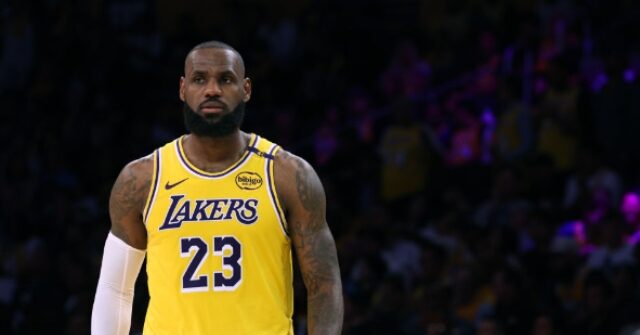In a move that surprised few, NBA superstar LeBron James publicly endorsed Vice President Kamala Harris in her presidential bid through a social media post on Thursday night. In his message, he conveyed that the “choice” in this election is “clear,” aligning himself with Harris, a progressive figure in the Democratic Party. The endorsement comes as part of a consistent pattern in James’s political involvement, having previously supported several prominent Democrats, including Barack Obama, Hillary Clinton, and Joe Biden. His support for Harris, particularly given her controversial policy stances, was widely anticipated, but the manner in which he executed the endorsement raised eyebrows and sparked criticism from both supporters and detractors.
James’s endorsement was encapsulated in a statement that emphasized his concerns for his family’s future and the values he hopes they will inherit. He urged his followers to “VOTE KAMALA HARRIS!!!” However, the accompanying video drew significant ire, especially for its contents. The video featured edited clips of former President Donald Trump that appeared to cast him as an adversary to civil rights and voting rights. Critics noted that the video presented a highly manipulated narrative that sought to demonize Trump by juxtaposing him with images from the civil rights movement and recent racial unrest. This misleading representation has not only drawn criticism from conservative commentators but has also led some of James’s supporters to question the integrity of his approach.
Among the backlash, many voiced disappointment over the choice to use what they deemed inflammatory propaganda. Comments from followers labeled the video as “sad propaganda” and expressed embarrassment that someone like James would resort to such tactics. Supporters emphasized that the edited sound bites, taken out of context, represented a disservice to the complex issues at hand and that the video’s simplistic portrayal undermined meaningful discussions around racial justice and voting rights. This sentiment underscores a growing frustration with how public figures, including James, engage in political discourse, often resorting to sensationalism rather than substantive argumentation.
The criticism of James’s endorsement is not solely rooted in the content of the video; it also reflects a broader examination of his public persona and his influence as a sports icon. While his past endorsements aligned him with key Democratic figures, the decision to utilize a controversial video format has alienated some fans who expected a more responsible and nuanced approach. The backlash illustrates the delicate balance public figures must strike when engaging in politically charged discussions, especially those related to sensitive issues like race and civil rights. Critics argue that such a strategy diminishes the gravity of the topics and ultimately stifles productive dialogue.
James’s perceived mishandling of the endorsement raises questions about his motivations and effectivity in political advocacy. Having previously been an outspoken voice on social issues, his choice of communication in promoting Harris was puzzling to many. The expectation from his fanbase and the public had been to leverage his platform to inspire thoughtful engagement, rather than relying on sensationalist tactics that diminish credibility. It remains uncertain why James chose to employ a polarizing approach rather than highlight Harris’s actual policies or achievements that align with his stated values and concerns for his family.
In conclusion, LeBron James’s endorsement of Kamala Harris was anticipated among those familiar with his history of political support for Democratic candidates. Yet, the backlash surrounding his use of a contentious video format highlights a serious concern within political discourse: the impact of inflammatory rhetoric on meaningful conversations about critical issues. As a prominent figure, James holds significant sway over public opinion, and critics argue that he squandered an opportunity to champion Harris through a platform that fosters informed dialogue. As the election approaches, the challenge remains for public figures to engage responsibly with their platforms, ensuring that their contributions advance the critical conversations needed in today’s political landscape.

